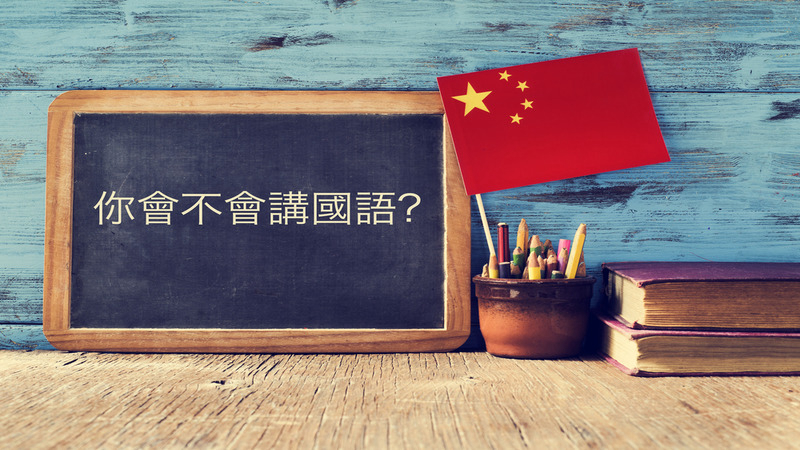A recent report by Student.com highlights China's rapid rise as a popular study destination for international students. With a record number of international students enrolling last year (398,000!), China is now the third most popular choice globally, following the US and UK.
This surge in popularity is driven by several factors. Government scholarships are making studying in China more affordable, while Chinese universities are steadily climbing the international rankings. Additionally, the opportunity to learn Mandarin, the world's most spoken language, is a major draw for many students.
Why Choose China?
World-class education: China boasts several universities ranked among the best globally, offering prestigious degrees that will hold increasing value in the future.
Mandarin immersion: China is the best place to truly master Mandarin, an invaluable asset for careers in international business and banking.
Cultural immersion: Immerse yourself in a unique blend of ancient traditions and modern marvels, with opportunities to explore iconic landmarks like the Forbidden City and the Rainbow Mountains.
Thriving student cities: Cities like Beijing and Shanghai offer a vibrant student experience with top universities, strong job prospects, and relatively affordable living costs.
Scholarship opportunities: The Chinese government is actively attracting international students with generous scholarships. Last year, 40% of incoming international students received financial aid!
Top Universities for International Students
The report also explores the top universities in China for international students, including established institutions and newer universities:
Peking University: Renowned for its academic excellence and strong programs in Humanities, Medicine, and Science.
Tsinghua University: Consistently ranked among the best, known for its exceptional programs in Engineering, Science, and Humanities.
Zhejiang University: Offers a comprehensive range of programs and excels in Engineering, Medicine, and Agriculture.
Fudan University: A prestigious university in Shanghai, offering strong programs in Medicine, Engineering, and Business.
Shanghai Jiao Tong University: A leading research university with strengths in Engineering, Science, and Business.
University of Science and Technology of China (USTC): A top choice for science and technology enthusiasts, known for its cutting-edge research.
Nanjing University: Offers a rich academic tradition with strong programs in Humanities, Science, and Engineering.
Wuhan University: Offers a beautiful campus and strong programs in Humanities, Science, and Medicine.
This is just a selection of the top universities in China.
China's Education System and Programs
China's education system offers Bachelor’s, Master’s, and Doctorate degrees across various fields and is known for its hierarchical structure. Both private and public universities provide higher education, with oversight from the Ministry of Education of the People's Republic of China (MOE).
The system has undergone significant reforms, influenced by Western and Soviet education models. In the 1980s, it evolved into a more autonomous and Westernized system. Today, China's education system is the second most popular globally and the leading destination in Asia for international students.

Bachelor’s Degrees in China
A Bachelor's degree in China (学士学位, xueshi xuewei) typically takes about four years to complete, except for programs like medicine and surgery, which can last up to six years. As part of China's effort to internationalize its higher education, many undergraduate programs are offered in English.
To be eligible for undergraduate studies, international students must have completed at least 12 years of formal education and demonstrate English language proficiency. The application process usually requires a personal statement, one or two recommendation letters, and other documents depending on the program, all certified by the Chinese Ministry of Education.
Most Chinese universities use a 4-scale or 5-scale grading system. However, prestigious institutions like Peking and Zhejiang Universities may use different evaluation methods. The grading system is generally divided into five categories:
- A: Excellent (85-100%)
- B: Good (75-84%)
- C: Average (64-74%)
- D: Pass (60-63%)
- F: Failure (0-59%)
Master’s Degrees in China
Master’s programs (硕士学位, shuoshi xuewei) in China are divided into taught (course-based) and research-based categories. To qualify, students must have completed a Bachelor's degree and demonstrate English language proficiency if studying in English.
Typically, a Master’s degree takes two years to complete, though some programs may extend to three years. The academic year generally runs from March to October, but specific dates can vary depending on the Chinese New Year.
Doctorate Degrees in China
China produces the highest number of PhD graduates in the world. Doctorate studies (博士, boshi) typically last three to four years. To be eligible, students must have completed a Master’s degree and pass entrance examinations. The first two to three years focus on coursework, with the final year dedicated to dissertation writing. Entry requirements and curricula vary by university and are updated annually.
Admission Requirements for International Students
Applying to top Chinese universities requires careful planning. Here’s a simplified process for international students:
Choose Your Course: Select a course that aligns with your academic and career goals. Popular fields include Engineering, Business Administration, and Medicine.
Research Universities: Use resources like QS World University Rankings to find universities that offer your chosen course.
Check Requirements: Review eligibility criteria on university websites. Common requirements include a Bachelor’s degree, proof of English proficiency (minimum TOEFL score of 80 or IELTS score of 6.0), and sometimes HSK certification for programs taught in Chinese.
Submit Application: Complete the application form, attach necessary documents (e.g., transcripts, recommendation letters, personal statement), and pay the application fee.
Await Response: Universities usually take 4-8 weeks to process applications.
Visa Application: After acceptance, apply for a student visa (X1 or X2) based on your study program's length.

Specific Admission Criteria
To be admitted to top Chinese universities, international students generally need:
Bachelor’s Degree: A recognized Bachelor’s degree is required for Master’s programs.
English Proficiency: For English-taught programs, students must meet minimum scores on tests like IELTS (6.5) or TOEFL (80).
Chinese Language Proficiency: HSK Level 4 or higher may be needed for Chinese-taught programs.
Standardized Tests: GRE or GMAT scores may be required for certain programs.
Letters of Recommendation: Typically, 2-3 recommendation letters are needed.
Statement of Purpose: A detailed statement outlining your academic and career goals.
Required Documents
When applying to Chinese universities, international students need to prepare several documents, including:
- Academic transcripts
- Proof of graduation or expected graduation
- Standardized test scores (e.g., Gaokao, SAT, ACT)
- 2-3 recommendation letters
- Statement of purpose or personal statement
- Valid passport with at least one year of validity
- 4-6 passport-size photos
- Financial documentation to cover tuition and living expenses.
Tuition Fees and Scholarships
Annual tuition fees in China typically range from $3,300 (around 20,000 RMB) to $9,900 (around 60,000 RMB). Securing a scholarship can cover tuition, provide free accommodation, and include a monthly stipend for living expenses.
Application fees vary by major and degree but generally range from $90 to $150, with a maximum of $200. Medical programs, like MBBS, often have higher fees, and prestigious universities may charge more. Despite these costs, tuition in China remains lower compared to the UK and USA.
Students should budget 200 to 330 RMB per semester for books and materials, totaling 400 to 665 RMB annually. The cost is higher for science, medicine, or art courses. Monthly internet costs average 95 RMB (shared among tenants), and a mobile phone plan is about 100 RMB per month.
Public transportation in China is affordable, with metro rides costing 3.32 RMB, bus trips 1.99 RMB, and a student transit pass around 99 RMB per month. A 20-minute taxi ride averages 26 RMB, and 1 liter of petrol costs 6.15 RMB. For example, a student at Peking University might spend 38,233 RMB in their first year, including fees and living expenses, and 152,932 RMB over four years.
Accommodation Costs
While Shanghai and Beijing are known for high living costs, affordable housing options are available. Rates are even lower in cities like Tianjin, Jiangsu, and Sichuan. Common housing options include:
Student residence halls: 995 to 2,655 RMB ($150 to $400) per month.
Renting a flat: 1,660 to 6,637 RMB ($300 to $1,000) per month for a one-bedroom apartment, depending on location and amenities.
Homestay: 2,320 to 3,650 RMB ($350 to $550) per month.
Hostel: Temporary option at 119 RMB ($18) per night for a private room.
Sharing a room in a residence or apartment is popular among international students to save money. A security deposit of 1,990 to 3,053 RMB and around $50 per month for utilities (water, gas, electricity) should be anticipated. Renting a one-bedroom apartment in a Chinese city typically costs 3,520 RMB monthly.

Cost of Living in China
Living costs in China vary by location and lifestyle. In cities like Zhenjiang and Yangzhou, food costs are less than $100 per month, while expenses in metropolitan areas like Beijing, Guangzhou, and Shanghai are higher. For instance, living in Beijing requires $1,000 to $1,200 per month, while Shanghai and Shenzhen range from $850 to $1,200. Other cities may require $600 to $1,000 per month, which may include accommodation if you live in a residence hall.
Costs largely depend on lifestyle choices. Eating out is affordable in China, but it’s wise to consider additional income through part-time work, such as teaching English.
Food Costs
China is renowned for its diverse and affordable cuisine. Meals at university canteens, small local restaurants, or fast food outlets typically cost between $1 to $4. Mid-range dining options, including both Chinese and international dishes, range from $4 to $7. Food costs can vary widely; for example, shark fin soup may cost $60 a bowl, while street noodles are just $1. Fast food like KFC and McDonald's is also cheaper in China, with meals costing around $4 to $5. Smaller cities generally have lower living costs.
Scholarships
China offers numerous scholarships to both domestic and international students, recognizing the importance of education for national development. Currently, over 50,000 international students in China receive scholarships.
CSC Scholarships: The Chinese Government Scholarships, provided by the Chinese Scholarship Council (CSC), are among the most common. These scholarships, which are part of a Ministry of Education initiative, aim to promote education, cultural exchange, and international cooperation. CSC scholarships may be partially or fully funded, although they generally do not cover MBA or MBBS programs. Over 279 universities in China accept CSC scholarship recipients.
Chinese Embassy Scholarships: These are actually a type of CSC scholarship (Type A) managed by Chinese embassies worldwide.
Chinese University Scholarships: Many Chinese universities offer scholarships that can cover tuition and accommodation. These scholarships are often awarded to students who apply early, have excellent grades, or excel in extracurricular activities. Universities may automatically consider applicants for these scholarships, or they may require a formal application. For example, Xiamen University offers five different scholarships for international students, and Jiangsu University provides a presidential scholarship for students applying through China Admissions. SUSTech also offers full scholarships for top-ranking undergraduate students in math and science.
Tips for Scholarship Applications
- Apply Early: The application period is limited, so apply as soon as possible. Due to high competition, it's advisable to apply to multiple universities and scholarships.
- Contacts: Reach out to someone at the university or embassy to ensure your documents are correctly prepared.
- Prepare Documents Carefully: Properly preparing your documents is crucial, as incomplete applications may not be processed.
- Learn Chinese: Familiarity with the language can be advantageous.
- Achieve High Grades and Build a Strong CV: Scholarships often go to academically outstanding students with notable work experience or leadership roles.

China Student Visa
To obtain a student visa for China:
- Receive an Admission Notice: Get accepted by a recognized Chinese university to receive the necessary admission notice.
- JW202 Form: Your university will provide the JW202 form, essential for visa processing.
- Visa Application Documents: Prepare your passport, visa application form, passport-size photos, financial proof, and a medical certificate.
- Submit Application: Apply at the Chinese embassy or consulate, potentially needing an appointment in advance.
- Processing Time: Visa processing takes 2-4 weeks, so apply well in advance.
- Collect Your Visa: After approval, verify the visa details to avoid travel issues.
Conclusion
Navigating the application process and obtaining a Chinese visa can be complex. For a smoother experience, consider scheduling a consultation with expert application advisors who can assist with your application process.
